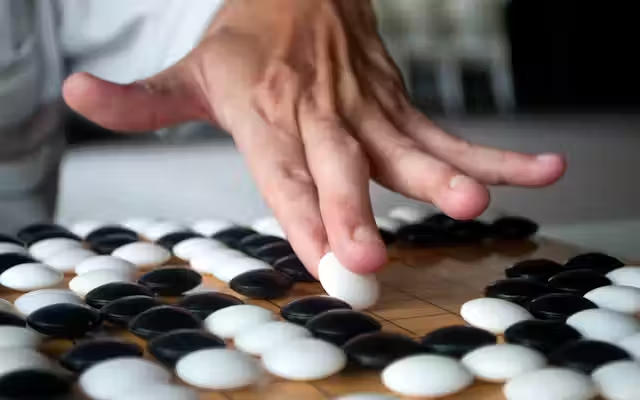Game theory, at its core, is about understanding the chess match of life – where every player’s move ripples through the board, affecting everyone else’s position. From the biological imperative of survival to the complexities of economic markets and social interactions, we are all players in countless simultaneous games.
The definitions presented here converge on a fundamental truth: rational decision-making doesn’t happen in isolation. Whether we’re negotiating a business deal, navigating office politics, or even choosing where to grab lunch with friends, we’re constantly anticipating others’ moves and adjusting our strategies accordingly.
But perhaps the most crucial insight isn’t just understanding how to play these games well – it’s recognizing which games we’re playing in the first place.
What Is Game Theory?
According to Mario Flores: “Problems in biological, social or economic environments deal with several agents making decisions that affect one another… Game theory developed as a formal analysis of these situations… it provided mathematical footing to social sciences and biology – which would otherwise have to rely on intuition.” While, in Theory of Games and Economic Behavior, von Neumann & Morgenstern state that, “the foundations of economics and of the main mechanisms of social organization require a thorough study of the games of strategy.”
To that point, and well said by Dixit and Nalebuff in The Art of Strategy, “It may not be enough to play a game well – you must also be sure you are playing the right game.”
So, how do we know if we’re playing the right game? This is exactly the point of the theories of games! Game Theory provides a set of mathematical tools for analyzing the interactions among decision-makers. There really isn’t any need for me to create a new definition of “Game Theory”, as people much smarter than I have already put in their efforts:
According to Parrachino, Zara & Patrone, Game Theory is: “the study of mathematical modeling of strategic behavior of decision makers (players), in situations where one player’s decisions may affect the other players. The basic assumption of Game Theory is that decision makers are rational players, that they are intelligent, so, while pursuing well-defined objectives, players take into account other decision-makers’ rationality and, accordingly, build expectations on their behavior.”
Turocy and von Stengel further define Game Theory as: “The formal study of decision-making where several players must make choices that potentially affect the interests of the other players” and continue with, “Game theory is the formal study of conflict and cooperation. Game theoretic concepts apply whenever the actions of several agents (individuals, groups, firms, or any combination of these) are interdependent. The concepts of game theory provide a language to formulate, structure, analyze, and understand strategic scenarios.”
Aumann and Hart, Handbook of Game Theory, v.1, write that “Game theory is concerned with defining ‘solution concepts’ and then investigating their properties, in general as well as in specific models coming from the various areas of application. Game Theory may be viewed as a sort of umbrella or ‘unified field’ theory for the rational side of social science”, while Ariel Rubenstein, in Theory of Games and Economic Behavior, Afterword, writes that Game Theory is “primarily to study the considerations used in decision making in interactive situations.”
Meanwhile, Roger Myerson gives us some reprieve with his brief definition of Game Theory when he states that game theory is “the study of mathematical models of conflict and cooperation between intelligent rational decision-makers… game theory is the science and study of multi-agent decision making”. – Game Theory: Analysis of Conflict.
Final Thoughts
In our increasingly interconnected world, where individual choices cascade through complex systems with unprecedented speed, game theory’s relevance only grows. It offers us a mathematical language to decode the patterns of cooperation and conflict that shape our lives – from global climate negotiations to everyday social dynamics.
The beauty of game theory lies not in reducing human interaction to cold calculation, but in illuminating the profound interdependence that defines our existence.
By understanding the games we play, we can play them more wisely – and perhaps, more importantly, choose better games to play.
Thanks for reading!
